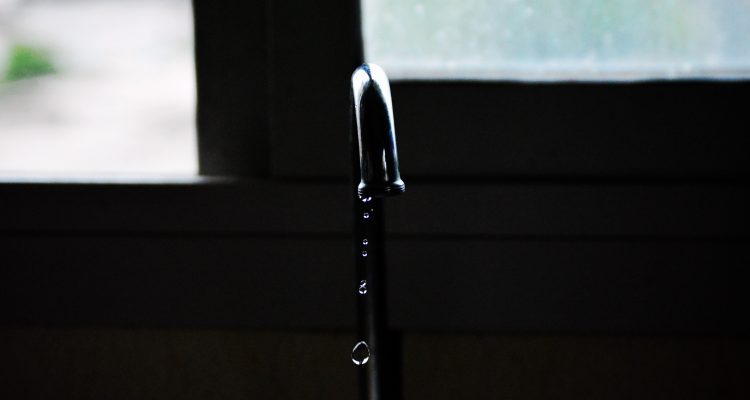In honour of Earth Day’s 47th Anniversary, we’ve gathered tips from our 47 Johnston Meier locations across BC. With all these ideas, we’re sure you’ll find some inspiration for making meaningful, positive changes this year. Spoiler Alert–many of these tips can be implemented at home too! Here’s how your small business can make a renewed commitment to caring for the environment:
1. The Right Light
Save money and energy by upgrading to the latest light bulbs and fixtures. ENERGY STAR products are rigorously tested and certified for high-efficiency. Just the right amount of light helps reduce employee eye-strain and creates a more welcoming, modern appearance for your business.
2. Saving with Sensors
Eliminate energy waste with occupancy detection (vacancy sensors) for hallways, break rooms, and meeting rooms. Your business may even qualify for a rebate or financial incentive. If you’re in British Columbia and a client of BC Hydro, investigate your eligibility here.
3. Pass Up Paper
Over the last decade, going paperless has become easier than ever. Whether it’s invoicing clients online, emailing receipts, or distributing a PDF catalogue instead of print, there are many free to low-cost paperless options out there to embrace.
4. Purify with Plants
Whether for mood-boosting benefits, or air-purifying abilities, evidence indicates that adding at least one or two potted plants to a workspace improves air quality, and even removes harmful toxins like formaldehyde.
5. Hand Dryers
Yes, there’s a greater upfront cost to installing an energy efficient hand dryer compared to a paper-towel dispenser. However, small business experts estimate that in a mere seven months your business will pay off the investment. Afterwards, energy costs drop to 1/4 of using paper towels. A double-win when you consider all the waste that will be diverted from the landfill.
6. Moderate A/C
Ever been in a building where the staff are walking around wearing sweaters in July? Keep energy costs down and maintain a moderate 24°C when using air conditioning.
7. Heat
Use a timer to set the thermostat back from 21° C to 16° C at nighttime or on weekends. Also, be sure to use ceiling fans if present. Many people don’t realize that fans are just as useful in the winter as in the summer. Hot air rises, so a fan helps distribute heat throughout a room more efficiently.
8. More Than Window Dressing
If your building receives direct sun, make sure the windows have appropriate shades or blinds, and close them at night. Certain thermal window coverings can help save a remarkable 45% on both heating and cooling your space!
9. Insulation Audit
Consider an insulation inspection, especially if occupying an older building. If air is escaping, new weather stripping and caulking can be a simple and effective solution.
10. Hot Water Happy Medium
Have hot water tank settings checked out to make sure they’re not excessively hot. “Too hot” can vary depending on your business. If you’re in healthcare or hospitality, check with your local health authority. For most other industries, 54°C should be about right–a quick phone call to your local plumber is always an option.
11. Sensible Scents
The BC Lung Association tells us that more than one in four Canadians suffer from some form of respiratory disease– many of which are aggravated by environmental triggers, like perfumes and scented cleaning products. If you’re not sure if a no-scent or low-scent policy is right for your business, try sharing a survey with your team.
12. Green Cleaning
Reduce scented and harsh chemical cleaners in favour of low-odor and biodegradable products.
13. Cell Phones
Encourage employees to recycle their used cell phones or batteries when they upgrade to a new model. You can even lead by example and host a drop-off location in your area.

14. Computers
Many computer manufacturers now offer pickup recycling programs. For example, Dell will pick up and recycle a computer (for free) if your business recently purchased a new computer from them.
15. Ink Cartridges
When printing is a must, make sure used ink cartridges are diverted from the landfill by recycling.
16. Post-Consumer-Waste Products (PCW)
Whether it’s recycling a misprint into a new roll of paper, or incorporating recycled materials into packaging for goods, look for ways your business might reuse.
17. Green Roofs & Landscaping
Work with a landscaper to create a green (living) roof on your building. Not only do they look great, your business could benefit from significantly lower heating and cooling costs, thanks to the added insulation.
18. Lower-Impact Hosting
Web hosting for the average website generates a surprising a 4,500 pounds of CO2 a year. According to Web Neutral Project CEO Jack Amend, that’s equal to driving certain new vehicles for more than 10,000 miles (!) Evaluate green hosting options rounded up by Tech Radar here.
19. Rain Barrels
Use of rain barrels in is on the rise, and comes with various benefits ranging from diverting water (and avoiding foundation leaks), to washing vehicles.
20. Telematics
If you have a growing sales or delivery team, consider using telematics fleet tracking to optimize driving routes, and significantly reduce fuel consumption.
21. Green Fleets
When purchasing company vehicles, consider investing in models that are electric, hybrids, or use biofuel technology.
22. Couriers
When couriering a package or document seek out a courier that’s carbon neutral.
23. Take a Walk
Remind your team why your small business is putting the environment first – go appreciate nature in a “walking meeting”.
24. Telecommute / Work From Home Days
Think about implementing a monthly, or even weekly work-from-home day to reduce employee travel time and vehicle emissions.
25. Outsourcing
Before expanding to a bigger office (and creating a larger carbon footprint) assess whether you can outsource select tasks before onboarding more people.
26. Goodbye, Water Bottles
Encourage employees to bring and fill up their own water bottles, rather than providing plastic water bottles or a water cooler.
27. Procurement
Make sure suppliers can stand up to the same high-standards you apply to your own business. When in doubt, ask questions, and look for industry relevant environmental certifications.
28. Improved Recycling
Make sure your business has an easy-to-access location for any recycling and composting. Don’t forget–in-office recycling is only as effective as the signage that accompanies it.
29. Fresh Food
Reward your team from time-to-time with fresh, local produce instead of installing a vending machine to dispense single-serve, packaged snacks.
30. Rechargeable Batteries
Power any electronic gadgets around the office with reusable, rechargeable batteries.
31. Kitchenware
Stock your kitchenette or break room with real coffee mugs, dishware, and flatware instead of disposables. Think about how far $20 can go at a second hand set shop–bonus points for reusing!
32. Bulk Buying
Reduce unnecessary packaging and switch from single serve condiments like creamers, and sugar packets to cartons and sugar bowls.

33. Fix That Faucet
Not only is it a nuisance; a leaky tap can add up to roughly 10,000 litres of wasted water a year (!) It could be as simple a solution as replacing a washer for under a dollar.
34. Donate Catering
Hosting a client meeting or special event? When you book your catered event or the caterer comes to pick up the (reusable) dishes afterwards, specify that you’d like the leftovers to be donated to the Food Bank or similar organization (they can handle the food safety details, and compost the items if they’re no longer edible).
35. Donate Old Electronics
Just because your office computers are no longer cutting edge enough to run your business effectively doesn’t mean they’ve reached the end of their lifespan. Consider donating them to a school or charity.
36. Reduce Packaging
If your small business is product-centric, be economical and environmentally friendly with reduced packaging. Do you need to have a 10 page instruction booklet or encase your product in plastic film? Probably not.
37. Waste Into Profit
If your business creates any manufacturing byproducts, you might be able to capitalize on it, and reduce your environmental impact.
38. Concentration
Is there an opportunity to offer a concentrated version of your product that makes shipping and packaging less impactful?
39. Pest Management
The reality of operating most brick-and-mortar small businesses is the necessity of pest control. Find a safe service in your area, and focus on transparency about products and practices (not just asserting that they are “green”).
40. Green Travel
If travel is a regular part of doing business, look into booking flights and hotel stays at companies with environmental certification.
41. Branded Bags
Plastic bags are decidedly on their way out, so get on board with branded shopping bags for your customers (also a great opportunity to spread brand awareness).
42. Refurbish or Repair
Whether it’s your printer or a leather sofa, there are many items that can repaired at a lesser cost than replacing new, and avoiding the landfill in the process.
43. Offset It
At the end of the day, you may find that these measures aren’t enough to lessen your small business’ environmental impact. For example, if air travel is a frequent part of doing business, seriously consider buying a carbon offset–some of which are tax deductible.
44. Go for the Gold (or Platinum!)
For business owners who are scaling up, LEED Certification could be a great way to show you’re an industry front-runner, with a steadfast environmental policy.
45. Talk It Over
Make sure your team knows “going green” isn’t just hype. Your policy doesn’t have to be complicated, but having a simple statement in place is a great start.
46. Put It In Writing
Once you’ve fleshed out your business’ environmental commitment for the year or season, put it in writing. From there, make sure to be proud of your policy, and let your customers know about it too!
47. Keep Improving
Sustainability is a moving target for businesses of all shapes and sizes. Schedule some time annually to review what did and didn’t work, and how you can improve using the latest knowledge and technology.
Need affordable insurance for your small business? We can help. Get in touch today.

